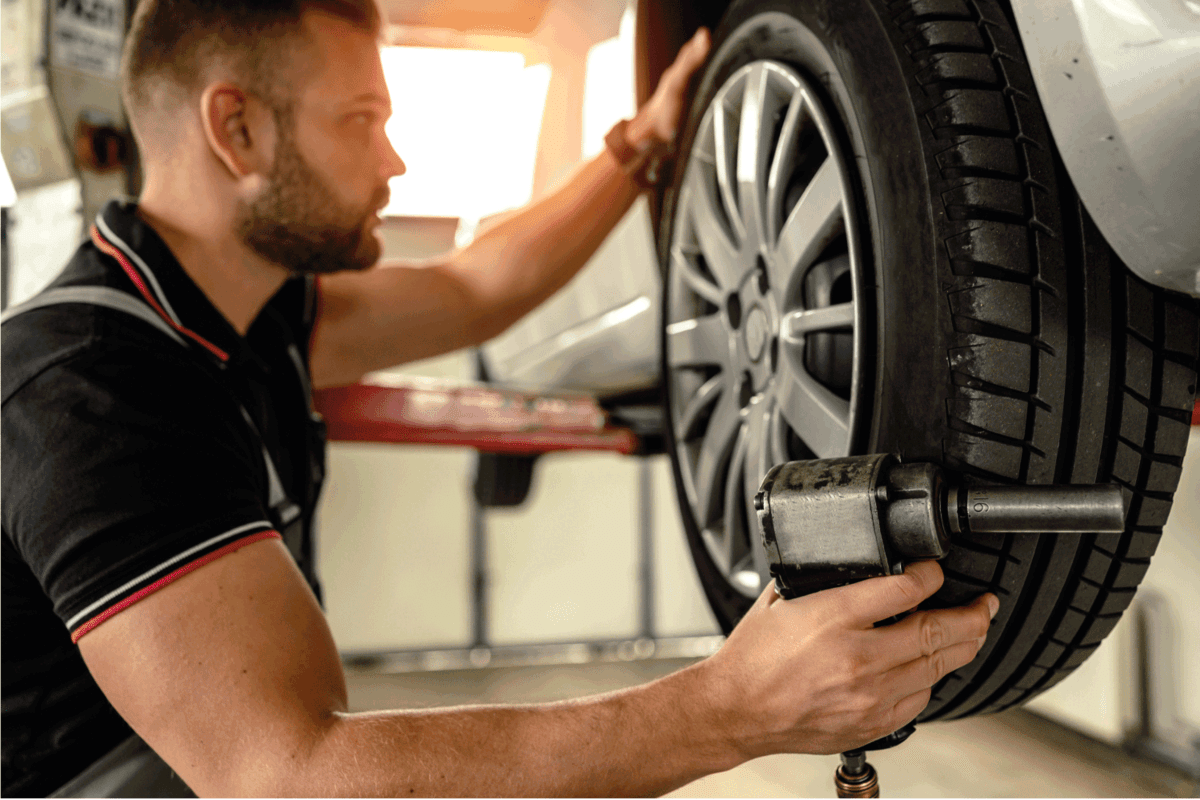
Are you feeling excessive vibrations while driving your vehicle? If you’re lucky enough, then this might only be the issue due to unbalanced tires. Tires might become unbalanced for several reasons, such as uneven tires, dented or worn-out rims and more.
No matter what the reason is, even a difference of 5-10g of tire weight would cause your vehicle to be unbalanced and pull it toward one side of the road. The question is: how do I know if my tires need to be balanced? This article will explore all the possible causes and symptoms of tire unbalancing. Moreover, we’ll also be discussing additional tips for tire rebalancing and the complete step-by-step procedure. So let’s dive in and explore tire balancing symptoms in detail.
First and foremost, it is essential to find out what tire balancing actually means. In simpler words, tire balancing is a method of tuning the weight of each wheel of your vehicle to ensure that the weight is distributed along the circumference equally. This is a practice to keep the load even on each axle by putting some clip-on weights on the wheels.
Tire balancing is essential as an out-of-balance tire can cause irreversible damage to your vehicle, such as damage to the wheels, worn-out tire treads, poor fuel efficiency, and more.
Unbalanced tires always show symptoms that need to be carefully examined and taken care of. If ignored, these symptoms can lead to permanent damage to vehicles and ultimately to your loved ones. Here are the unbalanced tire symptoms that’ll tell that your tire needs to be balanced:
One of the noticeable symptoms is excessive vibration of the vehicle. Check for any vibrations in the steering wheel, cabin, or vehicle’s body. The vibration can also produce noise that not only distracts the drivers but also causes damage to other parts.
Most drivers link this issue with the alignment, but if your vehicle vibrates excessively at higher speeds and turns towards one side of the road, the tires need to be balanced as soon as possible.
An unbalanced tire will produce unusual sounds. Drive your vehicle on the same road that you frequently use and compare the tire noise. If you’re experiencing any excessive noise or hum/buzz sound from your tires, chances are that the tire needs balancing.
A worn-out tire can cause extreme wobbliness on the road, pushing the vehicle toward the side of the road. You must be wondering what wobbly handling due to worn-out tires has to do with unbalancing. Well, the leading root cause for worn out tires is the unbalanced wheels, which put uneven pressure on the sides of the tires.
Unbalanced tires sometimes cause traction loss and hence the engine needs to exert extra force to keep the vehicle steady and balanced on the road. This, in turn, consumes more fuel.
Have you ever noticed that some of your vehicle’s tires deflate faster than others? If this is the case, it is most likely that your car is unbalanced. Some tires bear more load than others and hence lose air pressure faster than others.
Yes! You can drive the vehicle with unbalanced tires, but that would put your car at risk. The downside of unbalanced tires is not limited to excessive noise and wobbling, but it can cause permanent damage to the vehicle’s axle, tires, and rims.
An unbalanced tire can occur due to several reasons, including both internal and external factors. Here are a few potential causes of tire unbalancing:
It is a two-way phenomenon in which worn-out tires and unbalanced tires damage each other equally. Therefore, if one tire is more worn out than the other one, your car will be tilted on that side, exerting more pressure on those particular tires and hence causing unbalancing.
Excessively damaged or dented rims can cause unbalancing of tires due to uneven weight distribution.
Another possible reason why your tires need balancing more often is the rough road conditions. The potholes, friction, and other hazards will cause your tires to wear and tear, which might be the reason for unbalancing.
Rebalancing tires requires following a complete mechanical procedure. From finding out the unevenness and then putting on extra weight on the tires to balance them out. For this purpose, a specialized machine is utilized to find the lighter and heavier areas on the wheels. Curious to know how the complete balancing of tires is performed? Let’s find out:
First, the tire alongside the wheel is put on the balancing machine.
The machine will rotate the tire at a certain speed and check for vibrations. The vibrations will then give an idea of the lighter and heavier spots on the wheel.
The mechanic will then add weight to reduce the vibrations and balance the tire.
An unbalanced tire poses risks to your vehicle’s parts and can cause permanent damage. To know if tires need balancing, symptoms such as uneven tire pressure, vehicle pushing towards the side, excessive vibrations, should be monitored. When you feel your tires are out of balance, It’s best to take your vehicle to the mechanic and get them rebalanced for the safety of your loved ones.